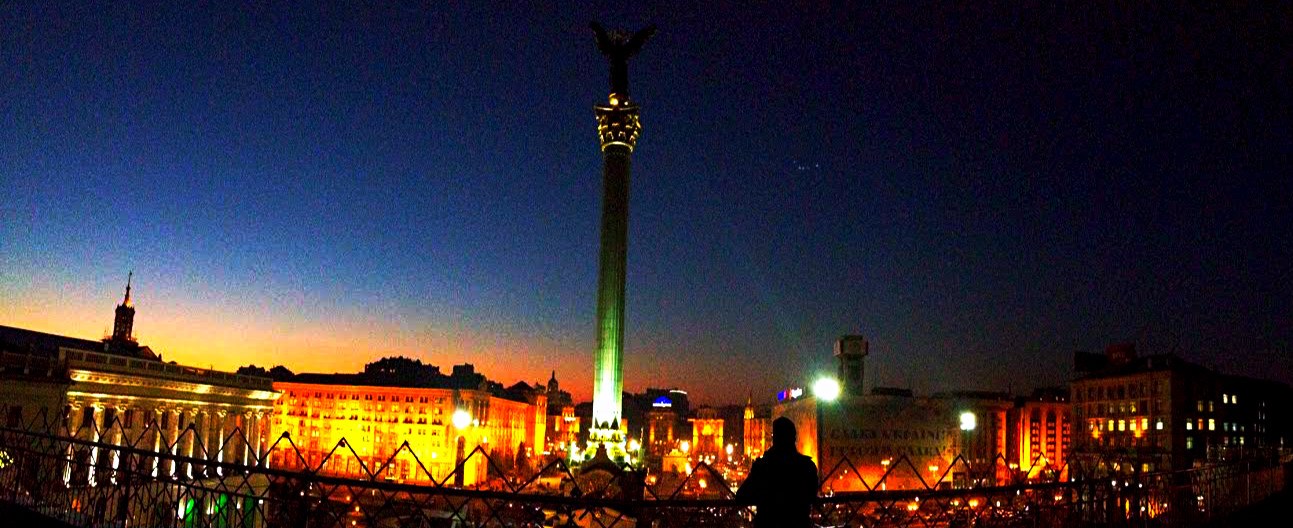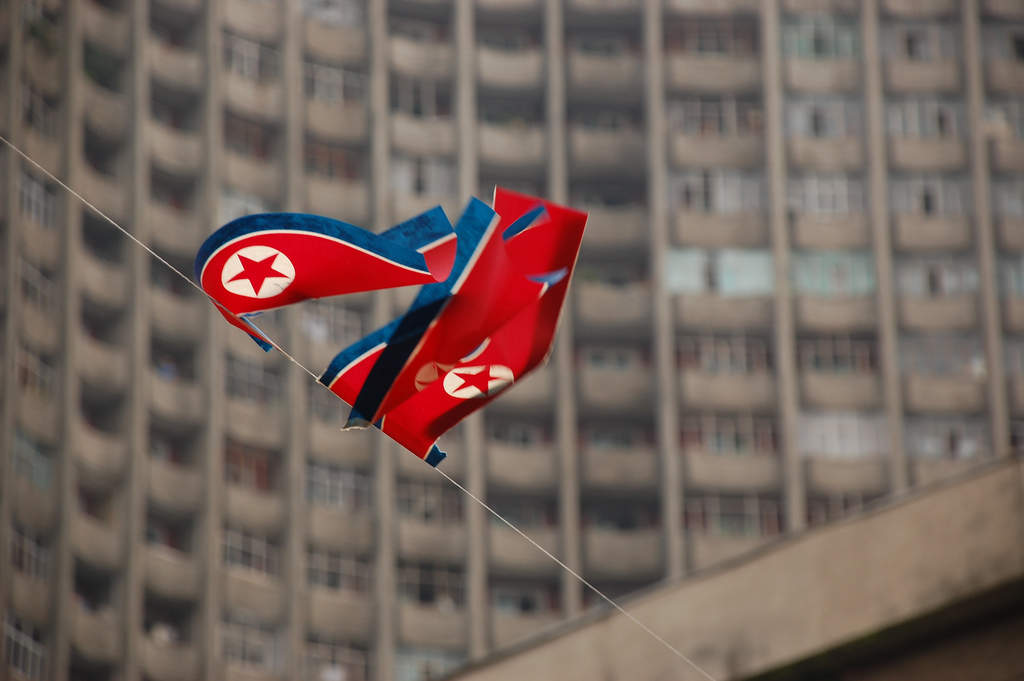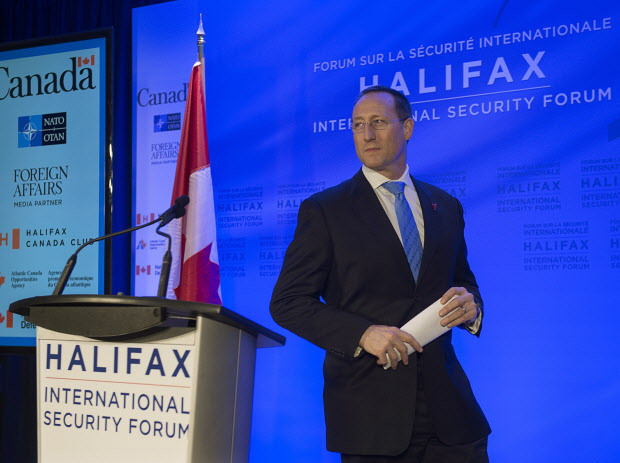Part I – The Prelude

Ukraine’s October cold hits you in the face as soon as you set foot in Kyiv. The chilly climate and snappy breeze of the capital almost seemed to reflect the country’s tempestuous political situation. Seemingly calm and sunny at first, in mere hours the cold can bring the temperature below zero to make your teeth chatter.
I was sent to Ukraine as one of 90 Canadians to monitor the country’s Verkhovna Rada or parliamentary elections from October 20 to 30, 2014 through the Organization for Security and Co-operation in Europe’s Office for Democratic Institutions and Human Rights (OSCE/ODIHR). The OSCE/ODIHR led a 600-member international election observation mission which was officially invited by the Ukrainian government in September after President Poroshenko dissolved parliament in August and called for snap elections to remove Yanukovych crony holdovers and restore parliamentary legitimacy.
What I saw and experienced prior, during and after the elections in Ukraine was eye-opening. As a graduate of international relations with a passion for civic engagement and democracy, election observation in Ukraine provided me a valuable lesson in Eastern European politics and helped strengthen my interest in assisting with democratic development abroad to support average citizens in their work to build up their own communities.
Impressions of Kyiv

I remember the first day I arrived in Ukraine. Kyiv reminded me a little of my time spent in Ufa, the capital of the Bashkir Republic in Russia. Like Ufa, many of Kyiv’s bombastic buildings and metro stations are very reminiscent of the country’s Soviet past, although stunning golden domed Orthodox cathedrals and towering ornate Baroque churches carve out a very distinct Ukrainian tale. It also exhibits a palpable development disparity. While there are imposing glass buildings being constructed that don’t seem to belong with the general landscape, some of the city’s housing blocks are abandoned and run down and there are just too many pothole-littered roads and pavements that require much needed repair.
Prior to our mission briefings, I decided to take a look around Kyiv. After navigating my way in the city with map in hand and rudimentary Ukrainian, I made it to what is inarguably the heart of Kiev, the Maidan Nezalezhnosti, an iconic square which became the very epicentre of Ukraine’s Orange Revolution in 2004 and the recent Euromaidan’s Revolution of Dignity. You can always see a steady stream of young professionals, babushkas, prowling teenagers and the occasional tourist stroll past the imposing mix of socialist and neoclassical buildings that line the square.
After thousands came together of their own volition roused with a mighty will to change life in Ukraine for the better, the scene in Maidan, the focal point of resistance to the Yanukovych government, has drastically changed. The burnt tires, police and groups of demonstrators – the ‘village of rebellion’ – have disappeared. The barricades on Grushevsky Street and throughout central Kyiv have been dismantled, tents and fortifications removed, garbage disposed, roads paved and cleaned. There was no frenzy. The streets were quiet.

There were, however, signs of the tumultuous period. Plenty of poignant makeshift shrines commemorating the Nebesna Sotnya were created in honour of the fallen heroes, complete with blossoms, rosaries, gasmasks, remnants of Molotov cocktails and improvised shields from the intense fighting between crowds of protestors and the Berkut, the special police force—now a dark and sombre past.
Although things seemed to have settled down in Maidan, almost everywhere I went in Kyiv, the frigid weather was countered by the heat of the nationalist spirit. Days before Election Day, you could find blue and yellow flags fluttering. Optimistic political ads for the 29 parties running and various election posters were ubiquitous. Public and private buildings were completely covered with depictions featuring the national colours. There was much praise for the pro-Ukrainian military too. Slava Ukraina or ‘Glory to Ukraine’ was the euphoric rallying cry recurring on all billboards.
Although patriotic ads suggested that Ukrainians would eventually see a vote that would bring a stronger Ukraine closer to the West, this was not all that clear in the past. Since its independence in 1991, Ukraine has continuously found itself at political, economic and cultural crossroads. Its main dilemma regarding where to turn for a closer collaboration – Russia or the EU – now appeared a little easier to address. However, a deeper look at the socio-political environment in Kyiv suggests that this picture of progress may be a façade.
For most Ukrainians I spoke with, the quietness of Kyiv and the optimistic political advertisements contrasted sharply with their own day-to-day experiences. Despite having set in place crucial legislative, executive and judicial political bodies, a diversified NGO sector and regular elections needed for a healthy democracy, the majority of Ukrainians do not trust governmental and other public institutions, with the exceptions being the Orthodox Church and mass media. The eruption of war in Donbas, pitted against a backdrop of a worsening economic and social climate profuse with corruption, has led to a prevailing atmosphere of general psychological fatigue and frustration.
During its 23 years of independence, Ukraine has experienced a significant number of elections, but few changes for the better. As I had discovered by browsing through TV channels in the evenings, pre-election debates are not much help either.Instead of having more rational discussions about the country’s future, pre-election debates are characterized by more emotionally-saturated language and are centered much more on bolstering a candidate’s image. Leading political parties and candidates tended to focus their campaigns around topical slogans – ‘peace,’ ‘a united state’ and ‘decentralization’ – letting the more substantial questions of national identity and European choice regress into the background.
Getting down to business

Five days prior to Election Day, the members of the Canadian team and I received training and instructions in Kyiv along with briefings related to Ukraine’s national security environment. Our mission was to focus on and closely monitor the election process from ‘soup to nuts’. We thus familiarized ourselves with the pertinent sections of Ukrainian Electoral law so that we could comment objectively and impartially on whether legal processes were followed and whether there were observable violations of the electoral procedures.
Ukraine’s parliamentary elections are administered by a three-level election management system consisting of the Central Election Commission (CEC), 225 District Election Commissions (DECs) and a few more than 33,000 Precinct Election Commissions (PECs) which play crucial roles in overseeing the casting, counting, and compilation of votes on election day.
In the Canadian context, DECs are equivalent to regional municipality commissions. PECs are the polling stations where voters cast their ballots. Just as in Canada, polling stations come in all shapes and sizes and are typically located in public buildings such as school gymnasiums. The CEC is a permanent organization, but DECs and PECs are formed only during the campaign period. Staffing of electoral commissions is partisan, based on party or candidate affiliation.
For Ukraine to have a successful election, the DECs and PECs must function effectively. PECs oversee the act of voting, from checking voter identification and distributing ballots, to physically tallying the results after the polls close. Well-trained and fully staffed polling station commissions are a crucial component of a credible election. DECs compile PEC results and adjudicate disputes.
If the organization of elections is not cumbersome enough, Ukraine also has a complicated system of parliamentary elections. Some legislators are elected from single-mandate constituencies in which the candidate who receives the most votes in the district wins the seat, and others from party lists, where seats are allotted based on the share of votes, at least five percent, garnered by each political party nationally. Currently being considered for reform, Ukraine’s mixed electoral system is often criticized for emboldening oligarchic control, bribery and clandestine pacts for the purposes of controlling business and the flow of financial resources.

On the road
After a day and a half of briefings, we were deployed in small multi-national teams of two to our respective regions. My election partner was Petr Mareš, a former Member of the Czech Legislative Parliament and now a Special Envoy for the Eastern Partnership. Petr was an extremely knowledgeable person and had plenty of electoral experience. So I picked his brain throughout our time of election monitoring and we exchanged ideas and insights on all things related to international politics.
Petr and I served in Brody Raion, located approximately 90 km northeast of Lviv, the capital of Lviv Oblast in the West. Brody, with a population of 24,000, was part of a farming region and not an area where there had been any major election trouble. Located in the valley of the upper Styr River, Brody was founded in the sixteenth century and, at one point in its history, comprised a very vibrant, hardworking Jewish population. The town was under Polish rule until 1939, but was annexed by the Soviet Union that year. The town became a major trading place, but later faced enormous hardship when the Germans occupied it in 1941. Today, with shabby houses, abandoned Soviet communal farms, mass grave sites, and expansive potato plots, Brody remains a very chilling place known for the many Jews who suffered so cruelly during WWII.

In Brody before the election, Petr and I spent the day familiarizing ourselves with our area of observation and pinpointing polls to visit. By law, the day is supposed to be ‘silent’, that is to say all campaign materials are to be removed by municipal workers and campaign ads are to disappear from TV and radio. For us election observers, it was a staging day. Together with our driver, Andrii, and translator, Maria, who we met earlier in the day, Petr and I departed to the outskirts of Brody to observe the preparations of 15 polling stations, speak with PEC chairs and curious local police, record our observations regarding accessibility and compliance, and report back to our central team. Our observations would be one piece of the enormous puzzle of the Ukrainian election process.
One of the things Petr and I looked for was the security of the safe as we understood that in previous years ballot safe boxes had been tampered with. According to Ukrainian law, ballots must be sealed in a safe and all the PEC members are required to sign a paper seal which must be taped over the door in order to prevent any unwanted access. As a group, the commissioners only open the safe on election morning. Interestingly, as part of security protocol for the ballots, a police officer is assigned to each precinct. In most cases, the officers live in the precinct in the days before the election and the safe is often kept in their provisional bedroom in the precinct. In each of our meetings, we found that the ballots had been secured well in the safes. We also found that there were no challenges faced by the election commissioners in setting up their polling stations, all of the necessary materials had been received and the revision to voters’ lists had also been legally completed and secured as of 8 p.m. the evening before the election.




